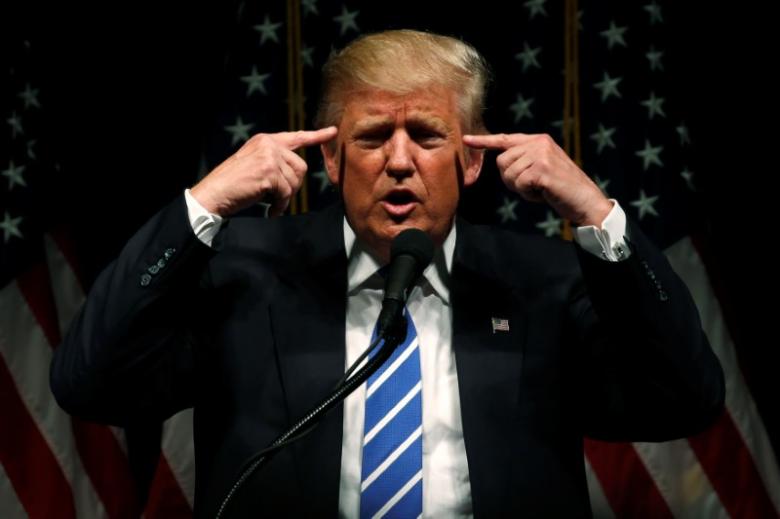Moscow, Portsmouth (U.K.) – In an attempt to overcome a new week of scandals, republican presidential candidate Donald Trump intensified attacks on his rival the democratic nominee Hillary Clinton and accused her of doping before participating in the second presidential debate last week.
After accusing the media of corruption and forging the elections, Trump hinted that Clinton is abusing drugs and suggested subjecting her to tests before the next debate. Trump statements coincided with his regression before the elections due 8 November.
The republican nominee speech on Saturday and his strange statements regarding the democratic rival represent an additional step in his attempt to escape repercussions of his abusive statements towards women.
Previously, Trump accused media means of corruption, saying ““The media is piling on with unsubstantiated claims to guarantee the victory of Clinton.”
A Washington Post-ABC News poll shows Clinton with a 47-to-43 percent lead over Trump. Before the first debate, the polls showed Clinton with a 46-to-44 percent.
The new poll shows that excitement of Trump supporters declined and the percentage of those who might stop their back to Clinton dropped as well.
While Trump continues his attacks against his rival, WikiLeaks website published letters in favor of Goldman Sacks that reveal additional details on Clinton’s relations with great institutions in Wall Street.
Clinton’s campaign did not deny these letters, which are part of a bigger number of hacked emails that belong to Clinton campaign Chairman John Podesta. Clinton team accused the Russian government of standing behind the hacking, an opinion also endorsed by the U.S. administration.
These letters include Clinton’s opinions towards financial organizations, relations with Russian President Vladimir Putin and the influence of previous WikiLeaks leaked documents.
The Kremlin, from its part, expressed discontent towards the U.S. threats to carry on similar cyber-attacks on Russian institutions as a response on the Russian hacking of U.S. websites.
